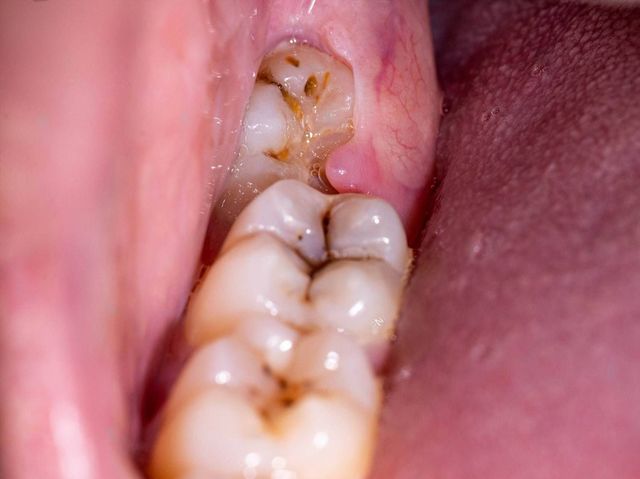TOOTH EXTRACTION
Tooth extraction or removal is a common dental procedure done under local anaesthesia for various reasons, such as –
WISDOM TEETH
The Wisdom teeth (also called Third Molar) usually do not push through the gums until the late teens or twenties. They are the third and final set of molars to arrive in our lifetime. However, even instances of eruption in late adulthood are common. If they erupt smoothly and without any interruption, then they can be proved as an asset. But in case they do not erupt properly or are misaligned, they would need to be extracted.
In the majority of cases, there will not be enough room in the jaw for a wisdom tooth or all wisdom teeth to fully emerge which makes the wisdom tooth impacted. This means that the wisdom teeth remain intact in the soft tissue and partially break or erupt through the gums. If they remain partially open, then the chances of bacteria entering the tooth are high. Food and bacteria builds up between the wisdom teeth and its neighbouring molars and decay and gum infection are very likely to occur. This can make brushing and flossing the wisdom teeth extremely difficult and can lead to several complications such as inflammation, pain, infection & can also lead to the swelling in the jaw and general illness. Due to these reasons, the wisdom teeth will need to be removed.
Crowded wisdom teeth in the upper jaw have a tendency to lean sideways and grate against the cheek. These wisdom teeth usually cause ulceration and chewing problems. The pressure from wisdom teeth may also force the other teeth closer together and interfere with the bite and cause toothache on the tooth next to it.


